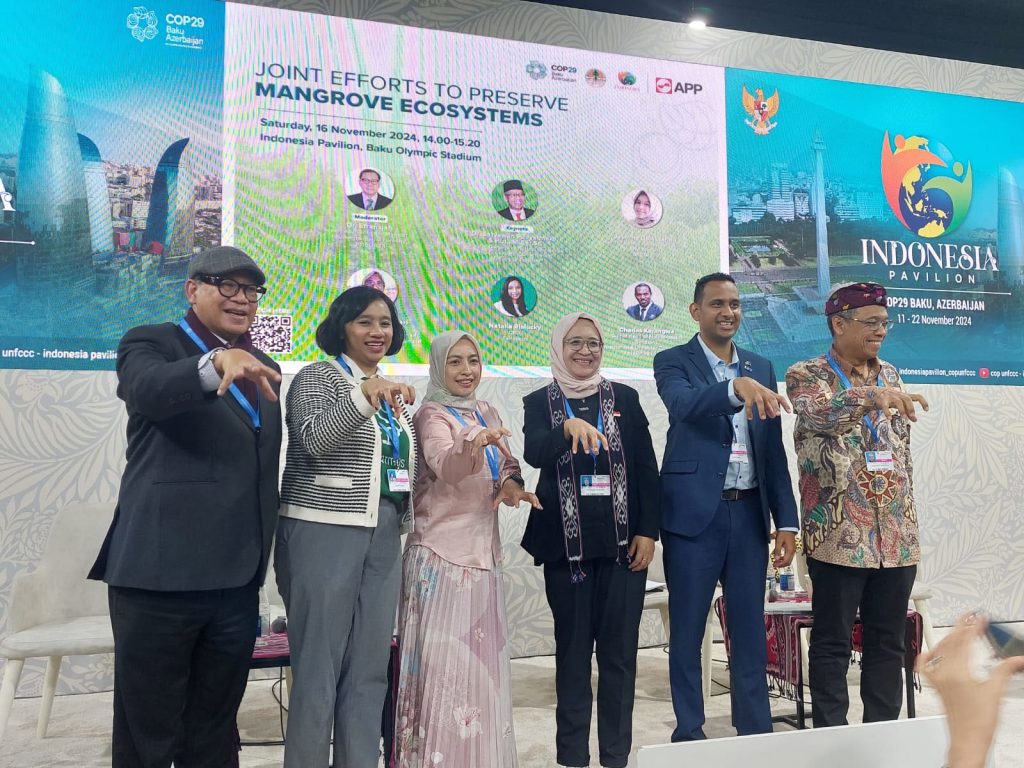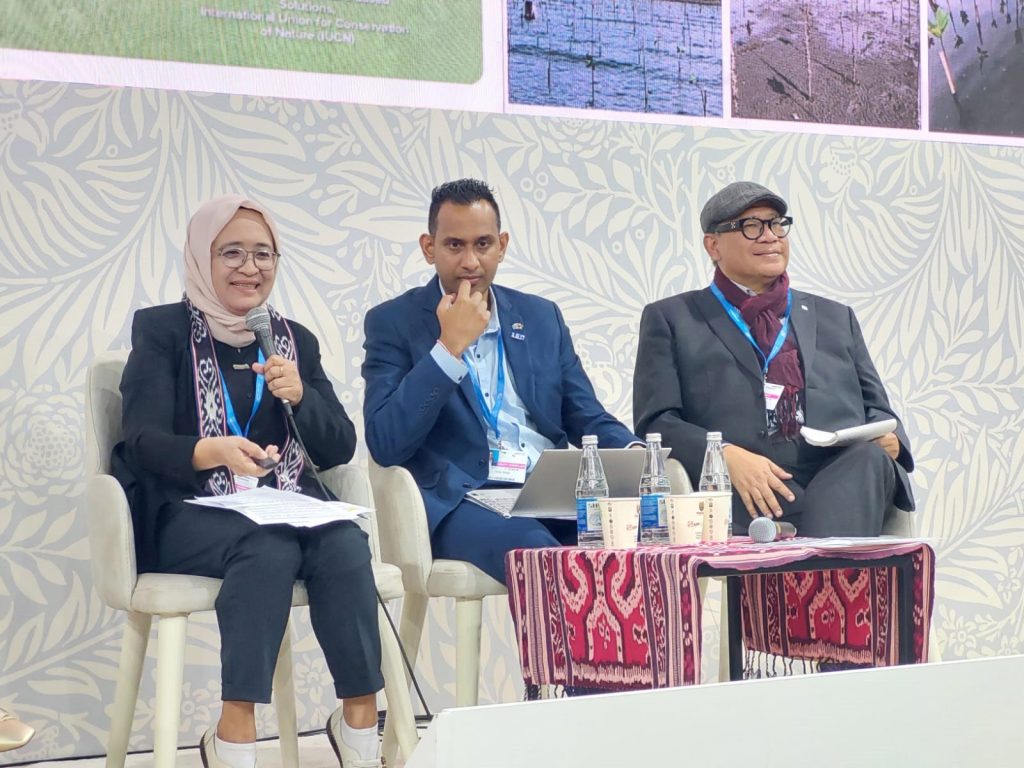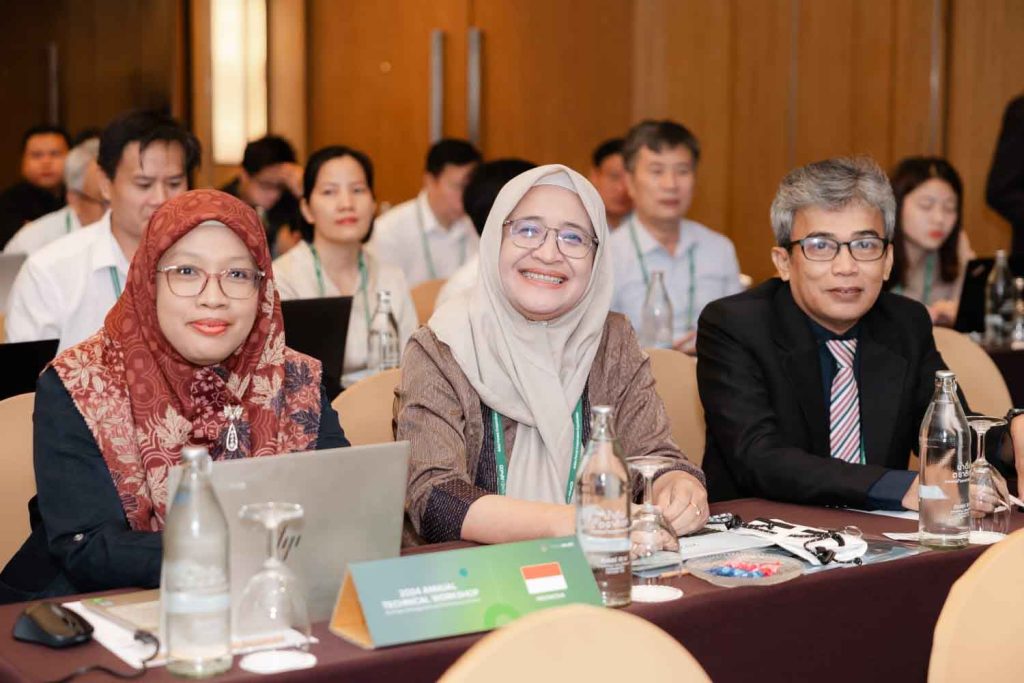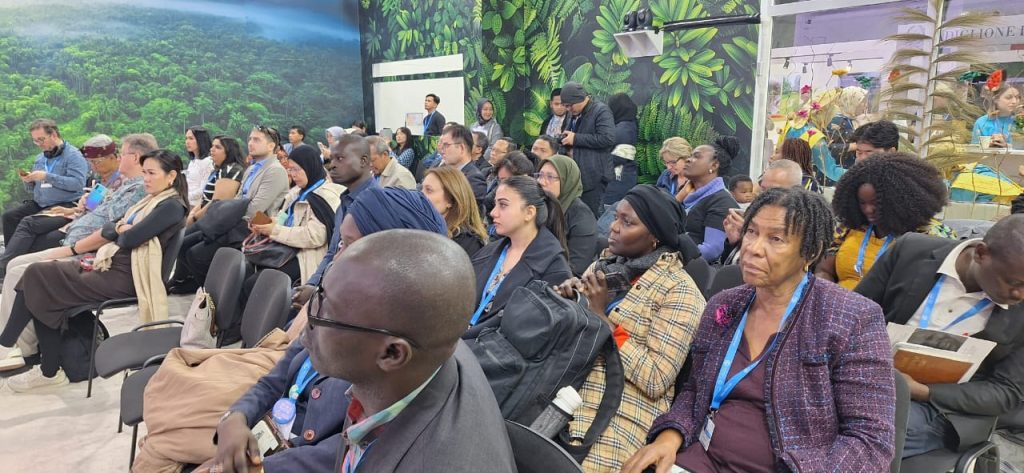
Baku, 16 November 2024 — The Center for Standardization of Sustainable Forest Management Instruments (PuSTARhut) actively participated in a talk show at the Indonesian Pavilion during COP 29 held in Baku, Azerbaijan. The event, initiated by APP Group, was themed “Joint Efforts to Preserve Mangrove Ecosystems.” Speakers included Jasmine Doloksaribu (APP Group), Wening Sri Wulandari (PuSTARhut), Natalia Rialucky (Fairatmos), and Charles Karangwa (IUCN).
In his keynote address, Prof. Satyawan Pudyatmoko, Director General of Natural Resources and Ecosystem Conservation, emphasized the importance of robust governance in mangrove conservation programs:
“Mangrove conservation must uphold three principles: ecosystem sustainability, species protection, and biodiversity,” he asserted.

Community Engagement: A Key to Success
Wening Sri Wulandari, Head of PuSTARhut, presented on Sustainable Mangrove Management Through Innovative and Collaborative Actions, stressing the critical role of local communities:
“Communities are key actors in successful mangrove management, as they interact directly with mangroves on the ground,” she stated.
She cited a successful collaboration example: restoration of mangroves on former fishponds in Sumbawa, West Nusa Tenggara, coordinated by KPH Amplang Plampang and supported by AFoCO.
Standards in Support of Mangrove Management
PuSTARhut also highlighted achievements in developing technical standards, including SNI for mangrove seed and seedling handling, and the initiation of the World Mangrove Center, backed by the Government of Germany.
“Indonesia has developed best practices for mangrove management, information systems, and regional mangrove centers, which should be managed, documented, and disseminated to stakeholders nationally and internationally. Furthermore, many partner countries are seeking collaboration with Indonesia in mangrove management and require policy guidance,” Wening explained during her presentation.
Insights from Other Speakers
Jasmine Doloksaribu (APP Group) highlighted successful mangrove conservation and rehabilitation programs in Jambi, South Sumatra, Tangerang, and Banten. Meanwhile, Natalia Rialucky (Fairatmos) discussed carbon pricing and the development of systems to facilitate monitoring of rehabilitation success and calculating carbon stocks.
Ria pointed out ongoing challenges in mangrove rehabilitation, particularly technical barriers related to proper planting techniques and the importance of technology in monitoring success.

Interactive Dialogue and Audience Engagement
Moderated by Dr. Efransyah, the talk show prompted enthusiastic participation from over 50 attendees representing countries such as Japan, Korea, Gambia, and others in Africa. Participants showed interest in silvofishery rehabilitation techniques, addressing Nypa palm as an invasive species in mangrove ecosystems, and exploring systems for monitoring and evaluation of rehabilitation efforts.

Recommendations and Next Steps
The session concluded with a recommendation that Indonesia host an international forum to share knowledge, best practices, and policy strategies among stakeholders involved in mangrove conservation and rehabilitation, including government initiatives such as the World Mangrove Center.
